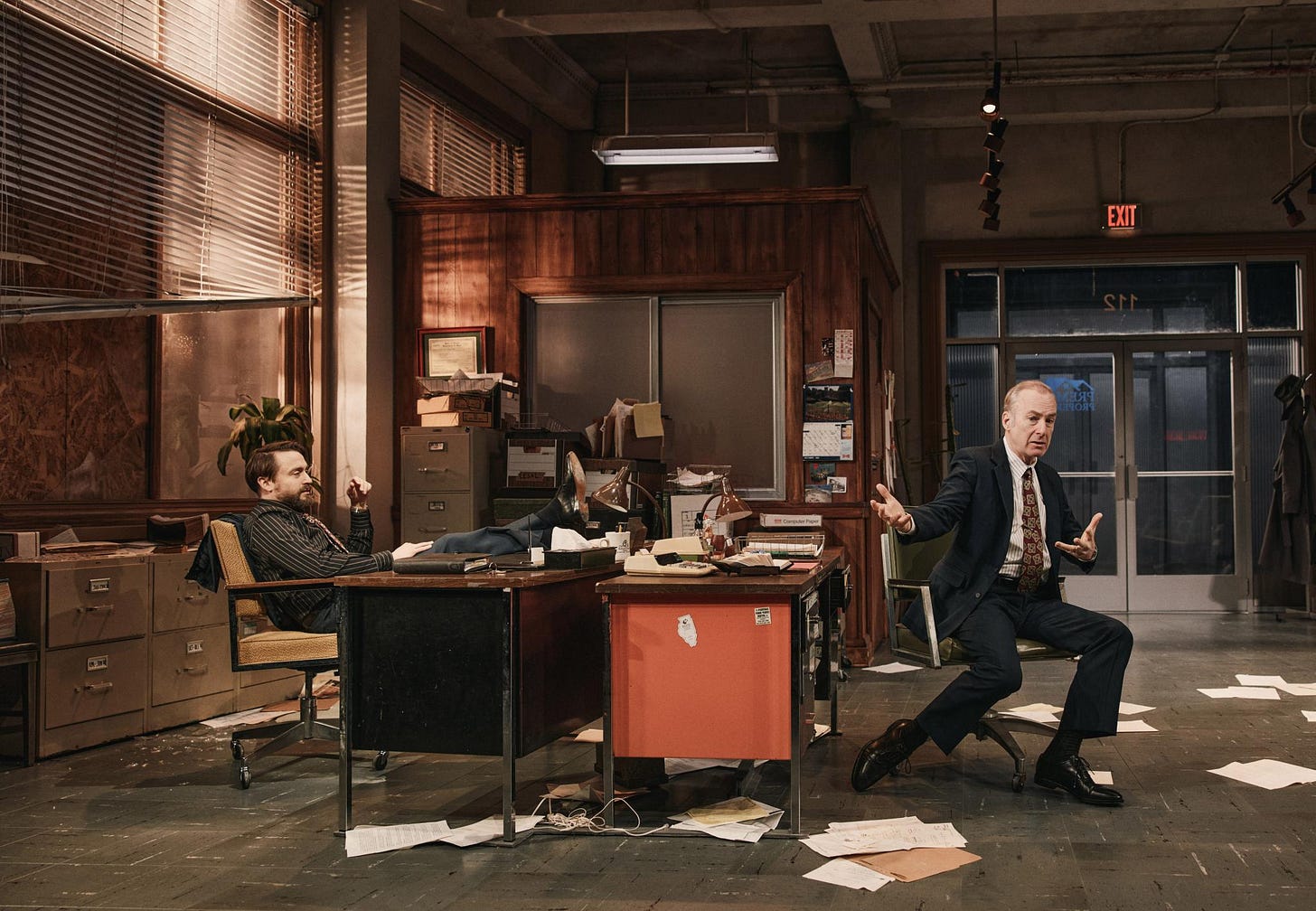Kieran Culkin, Bob Odenkirk, and Bill Burr Sell the American Dream on Broadway
In David Mamet’s Pulitzer Prize-winning play Glengarry Glen Ross, desperation hits harder, and dignity is the real prize.
We’re no theater experts at The Cure. We’re actually just not experts, period.
So it may be no news to those who know more than us that there’s a deep and interesting thread of American theater (and literature) that relates to… sales.
There’s the old modernist classic,…




